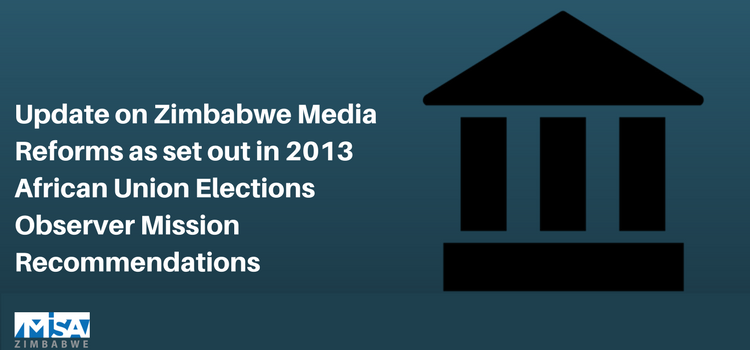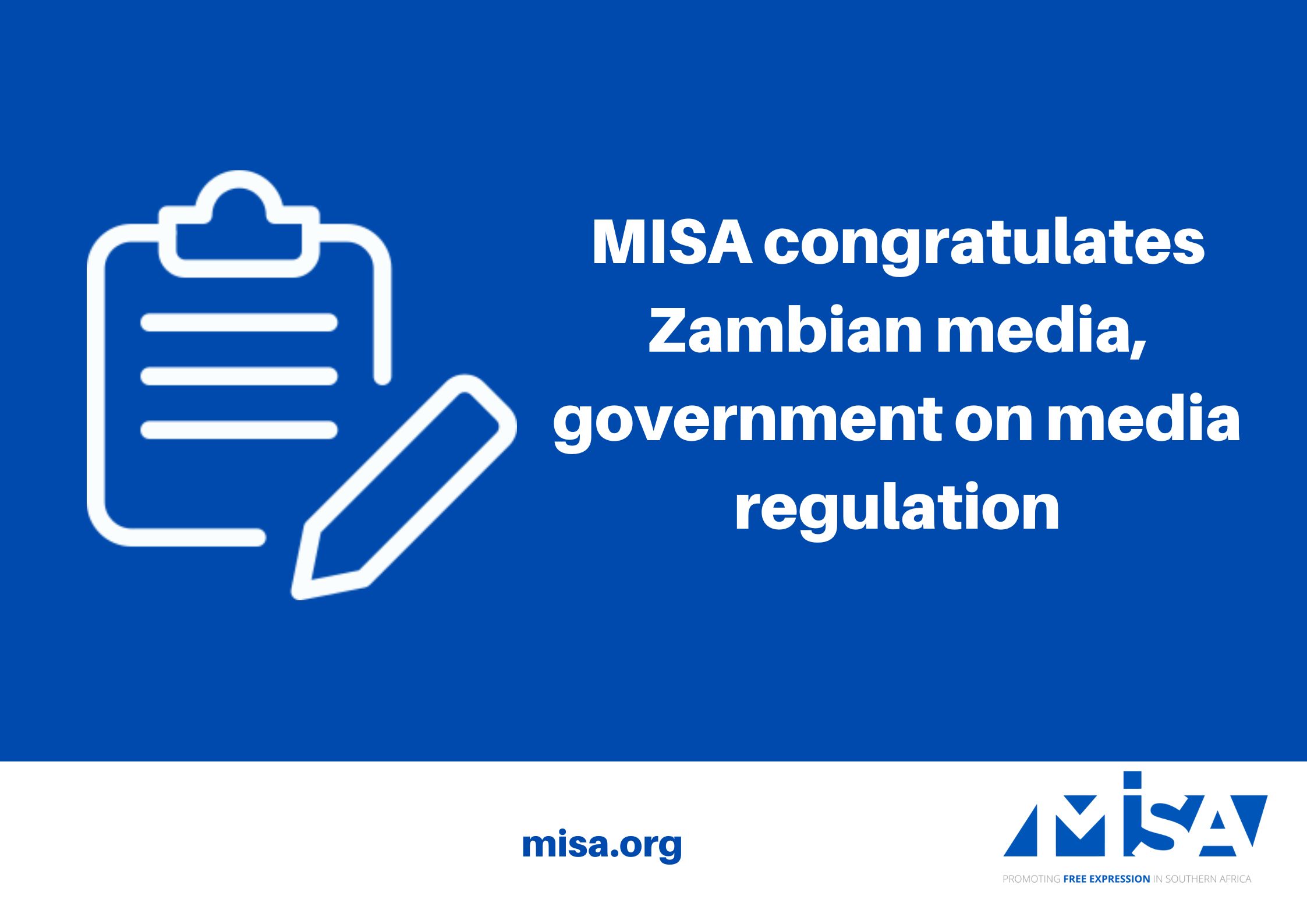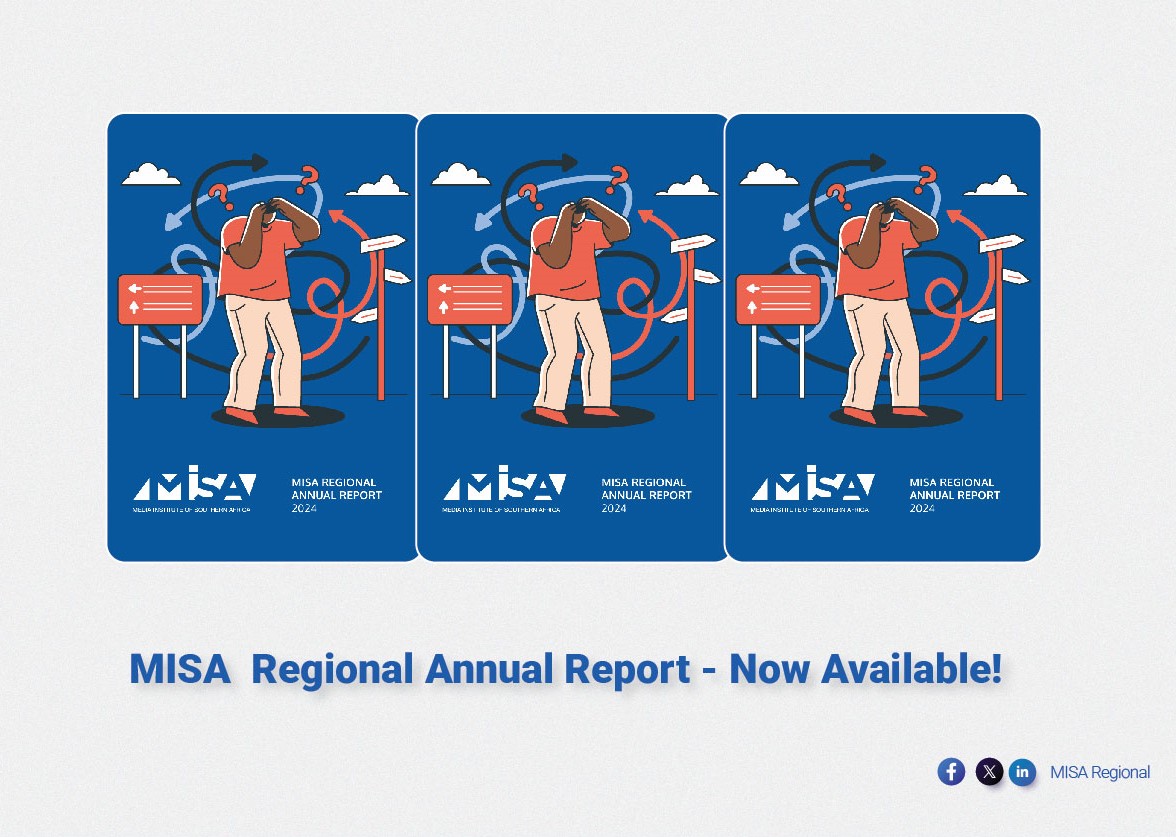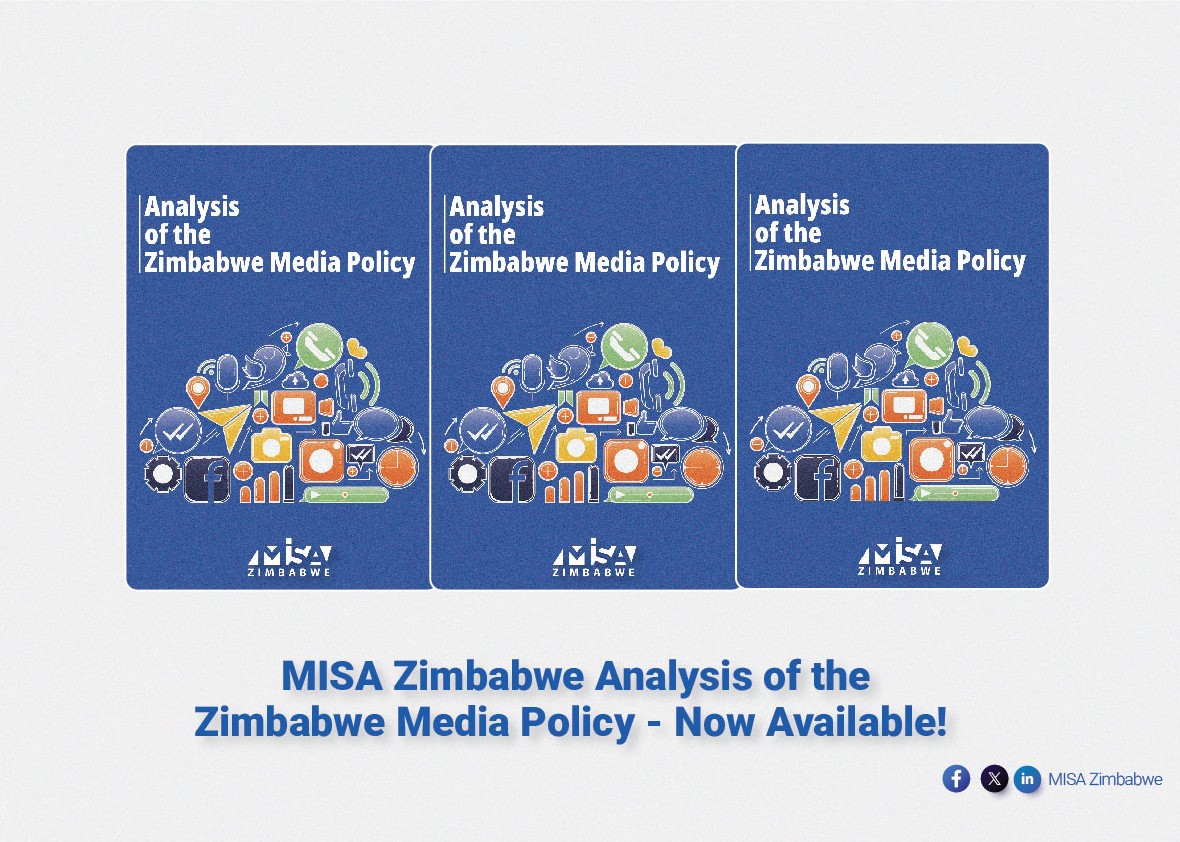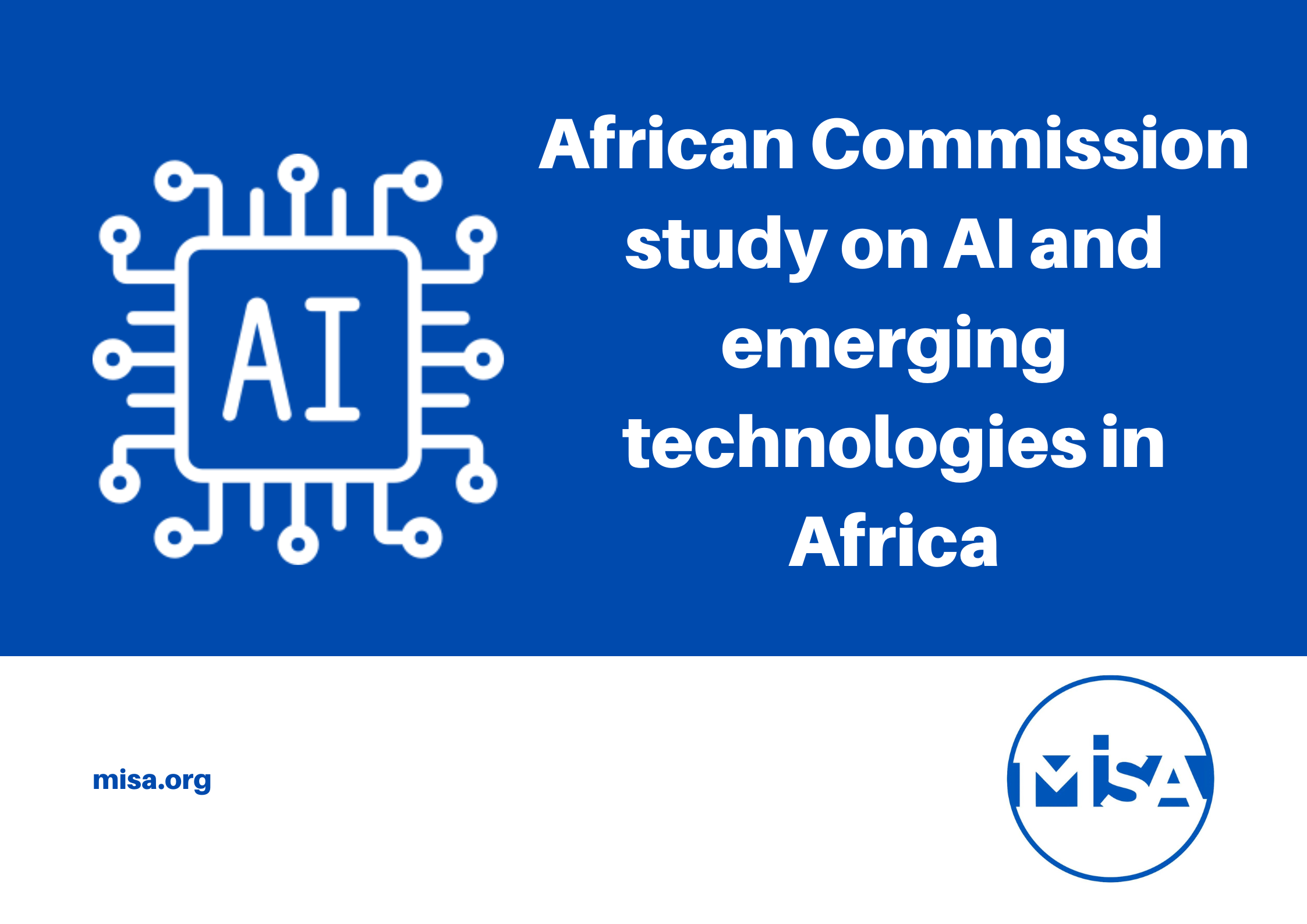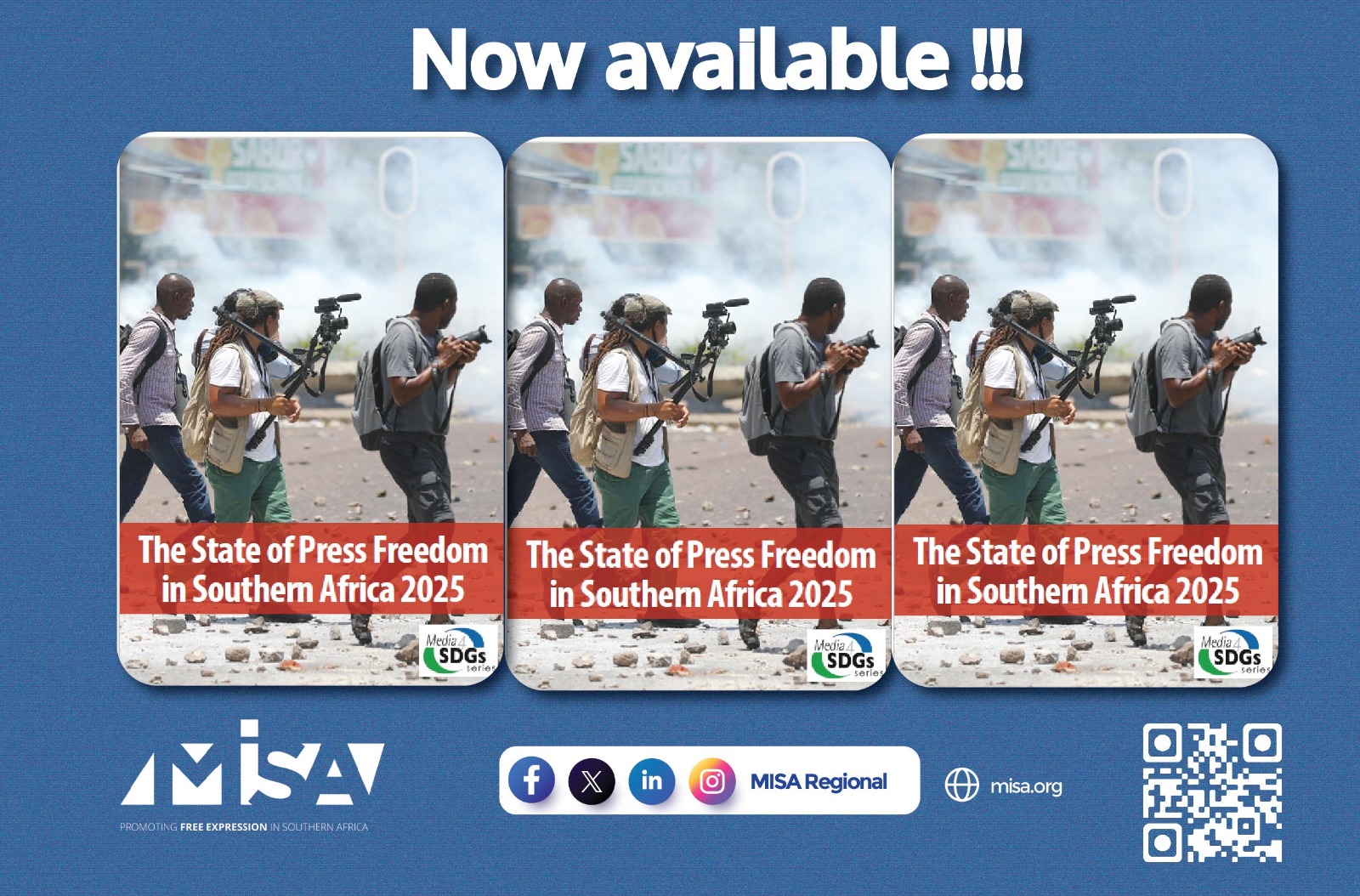Executive Secretary
Southern Africa Development Community
SADC House
Plot No. 54385
Central Business District
Private Bag 0095
Gaborone
Botswana
12 March 2018
Dear Dr. Stergomena,
UPDATE ON ZIMBABWE MEDIA REFORMS AS SET OUT IN THE 2013 AFRICAN UNION ELECTIONS OBSERVER MISSION RECOMMENDATIONS
The Media Institute of Southern Africa Zimbabwe (MISA Zimbabwe), by virtue of this letter, humbly seeks to draw your attention on the above-mentioned matter highlighting the lack of progress in media reforms in Zimbabwe.
After the 2013 general elections, the African Union Election Observation Mission (AUEOM), made recommendations on improving the state of the media in Zimbabwe. These recommendations complement the media rights enshrined in Zimbabwe’s Constitution, which was gazetted shortly before the 2013 elections.
Five years later, the Zimbabwean government is still to implement the envisaged media reforms. This indeed is cause for great concern, especially in light of the fact that Zimbabwe is expected to hold general elections sometime this year.
MISA-Zimbabwe respectfully submits that Zimbabwe’s government has the obligation and responsibility to implement the reforms in question without any further delays. This obligation arises from the country’s Constitution as well as regional instruments such as the SADC Principles and Guidelines Governing Democratic Elections and the African Charter on Democracy Elections and Governance.
It is with this in mind, that we humbly seek to draw your attention to the following issues of concern:
- Need for alignment of media laws with the Constitution
Zimbabwe’s Constitution is the supreme law of Zimbabwe and any law, practice, custom or conduct inconsistent with it is invalid to the extent of the inconsistency. Despite this clear position, government has been reluctant to institute meaningful changes to deal with inconsistencies, which currently exist in laws, which affect the media environment in Zimbabwe.
In its 2013 observation, the “AUEOM took cognisance of several interlocutors’ views that fundamental freedoms may be curtailed should there be no further review of the provisions of the Broadcasting Services Act (BSA) and the POSA and the manner in which they were being implemented.”
Laws such as the BSA, the Public Order and Security Act (POSA), along with the Access to Information and Protection of Privacy Act (AIPPA), still contain provisions, which indisputably violate fundamental rights to privacy, freedom of expression and access to information. The protection of these fundamental rights is key to a robust democratic media environment.
- Partisan reporting by the public broadcaster
Section 160J of Zimbabwe’s Electoral Act states that during an election period, broadcasters and print publishers must ensure that all political parties and candidates are treated equitably in their news media. This position is reiterated in Article 17(3) of the African Charter on Democracy, Elections and Governance, which calls for the state broadcaster to provide a balanced platform for all competing parties and alternative voices.
Before and after the 2013 general elections, concerns were raised about the public broadcaster’s highly partisan coverage of the ruling political party to the exclusion of opposition political parties and other dissenting voices and views.
This state of affairs informed the AUEOM’s recommendation that: The ZEC scrupulously enforces the relevant regulations of the Electoral Act to afford alternative voices and all political parties equitable access at all times during elections.
The AEUOM emphasised the public broadcaster’s central role in elections, as a platform for airing political messages from all political contestants. Five years on, the Zimbabwe Electoral Commission (ZEC) has not made any tangible efforts to ensure that political parties will be treated equally and equitably during this year’s election period.
The AUEOM’s 2013 observation that the national broadcaster tended to provide live and in-depth coverage largely to a single political party remains true to this day. The bias exhibited by the public broadcaster and state-owned media establishments, has contributed to a highly polarised media environment in the country. The AUEOM observed that both private-owned and state-owned media establishments were evidently politically inclined in their reportage.
MISA-Zimbabwe respectfully submits and urges for the urgent transformation of the Zimbabwe Broadcasting Corporation (ZBC), into a truly independent and representative public broadcaster.
- Liberalisation of Radio and Television Ownership
In its report on the 2013 elections, the AUEOM recommended that:
The provisions of the BSA be fully implemented to enable the liberalisation of radio and television ownership, thereby providing a broader platform for all stakeholders to voice their opinions, consistent with the stipulations of the new Constitution. The involvement of civil society and other actors in the review of the legislation such as the AIPPA and POSA and the manner in which they are applied will also enhance the country’s progress toward democratic consolidation.
However, the government is still to license community radio stations. While licenses have been granted to national and regional commercial radio stations, however, the majority of these licenses were given to radio stations owned by state owned enterprises and those perceived as being politically connected.
- Safety and Security of Journalists
While 2017 saw a marked decline in the number of cases involving media violations; the severity of the nature of the violations was of great concern. MISA-Zimbabwe recorded the unlawful arrest or detention of seven (7) journalists in 2017. In the same year, MISA Zimbabwe recorded the assault of eight (8) journalists during the course of their duties.
The majority of the cases of assault of journalists on duty were perpetrated by the police serve for three which involved army personnel and ruling Zanu PF youths.
Past experience shows that during an election year, media violations tend to rise and the likelihood of this happening ahead of the 2018 elections cannot be discounted. For instance, on 1 March 2018, some journalists were harassed at an MDC-T opposition party press conference.
MISA-Zimbabwe firmly believes that more needs to be done by the State and political parties to promote the protection of journalists as they cover election related events.
- Dual regulation and or accreditation of journalists
The requirement that a journalist who is already accredited with the Zimbabwe Media Commission (ZMC), needs further accreditation by the Zimbabwe Electoral Commission (ZEC), for election-related coverage, is unnecessarily cumbersome, bureaucratic and an unnecessary drain on the fiscus.
Journalists duly accredited by the ZMC, should thus be allowed to cover election-related processes and events in the spirit and letter of the right to media freedom. Accreditation of journalists by the ZMC should suffice for election purposes.
The media cannot cover elections properly when it cannot access relevant events and places by virtue of not being accredited by ZEC. The purpose of laws or regulations on media and elections – and the function of a regulatory body – is to create an environment in which the media conducts their business freely.
Elections are not state secrets to be investigated by dedicated investigative journalists. Instead they should be conducted openly and freely. The fundamental guiding principle here being that, journalists as duly and constitutionally accredited by the ZMC, should be given unfettered access to all election related events.
Freedom of information entails, among other principles, that the media is entitled to investigate and report critically on the efficiency and probity of election administration. This is aptly provided for under Sections 61 and 62 of the Constitution, which guarantees media freedom and access to information, respectively.
It is MISA-Zimbabwe’s hope that the above submissions will assist the AU and SADC missions to hold the Zimbabwean government to account based on its repeated promises to implement the long overdue media reforms.
This is of paramount importance and urgency ahead of the 2018 elections, which the government has repeatedly promised will be free, fair and credible.
Yours Sincerely,
Golden Maunganidze
Chairperson
MISA Zimbabwe
84 McChlery Drive, Eastlea
Harare, Zimbabwe
Telephone: +263 4 776165/746838
Email: misa@misazim.co.zw
Twitter: @misazimbabwe
Facebook: MISA Zimbabwe
Website: zimbabwe.misa.org
Cc: His Excellency, Paul Kagame
Chairperson
The African Union
Cc: His Excellency, Moussa Faki
Chairperson
Commission of the African Union




